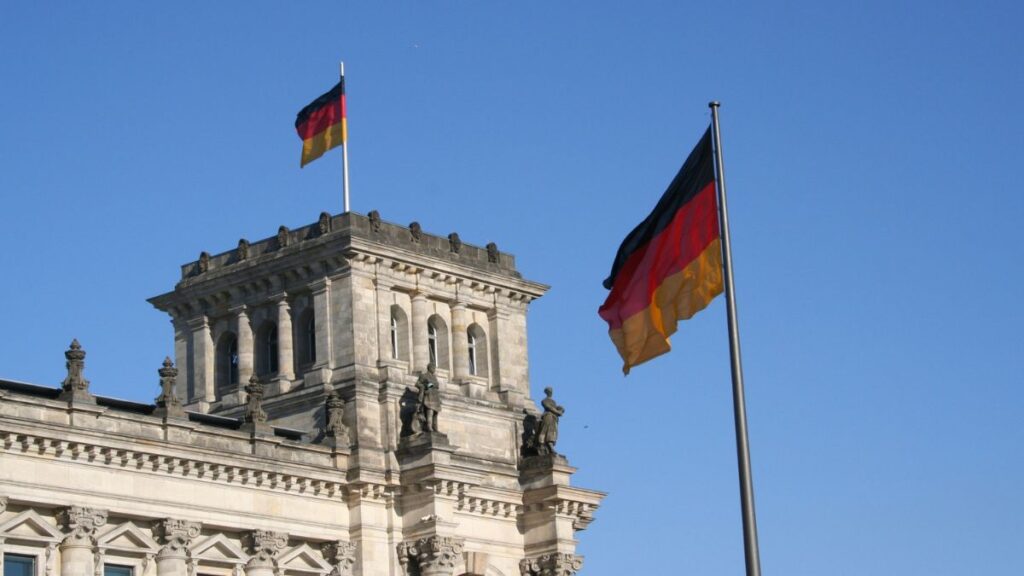Germany has officially entered a recession as revised figures reveal a contraction of 0.3% in the first quarter of 2023. This follows a decline of 0.5% in the previous quarter of 2022, meeting the technical definition of a recession as two consecutive quarters of economic contraction. Data from the Federal Statistical Office reveals a contraction of 0.3% in the first quarter of 2023, marking two consecutive quarters of decline and meeting the technical definition of a recession. The revised figures highlight the challenges posed by rising prices and their effect on consumer spending and economic growth.
The reluctance of households to spend was evident in various areas, with reduced expenditures on food, beverages, clothing, footwear, and furnishings, according to the statistics office. The persistently high price increases continued to burden the German economy, leading to a 1.2% decrease in household final consumption expenditure in the first quarter of 2023. The shock in energy prices played a significant role in consumer spending reduction, leading to a decline in economic growth.
While employment in the country saw an increase in the first quarter, and inflation showed signs of easing, higher interest rates are expected to weigh on spending and investment, creating further challenges for the economy. Germany’s economy minister, Robert Habeck, attributed the recession to the country’s historical dependence on Russian energy supplies, but expressed determination to overcome the crisis.

Andreas Scheuerle, an analyst at DekaBank, highlighted the impact of immense inflation, stating, “Under the weight of immense inflation, the German consumer has fallen to his knees, dragging the entire economy down with him.” Household consumption decreased by 1.2% quarter-on-quarter after adjustments for price, seasonal, and calendar factors. Government spending also experienced a significant decline of 4.9% compared to the previous quarter.
Impact on Germany
The recession poses significant challenges for Germany, which has long enjoyed a robust economy. The manufacturing sector, traditionally the backbone of the German economy, has been particularly hard-hit. Sluggish global demand, supply chain disruptions, and trade disputes have hindered export-oriented industries, leading to reduced production levels and job losses. The decline in consumer and business confidence further exacerbates the situation, with reduced spending and investment.
European Consequences
Given Germany’s central position within the European Union, its recession has broader implications for Europe as a whole. Germany is not only the largest economy in Europe but also a vital engine of growth and stability. As the recession deepens, it could have a spillover effect on neighboring countries, impacting trade, investment, and overall economic sentiment. Weaker demand for goods and services from Germany could potentially drag down the economies of other EU member states, leading to a region-wide slowdown.
Economic Outlook and Reactions
Carsten Brzeski, the global head of macroeconomics at Dutch bank ING, acknowledges that the contraction in Germany’s GDP is not the worst-case scenario, but still represents a drop of almost 1% from the summer of the previous year. The Ifo Index, Germany’s leading monthly indicator, indicates a continuing weak backdrop for businesses, with all sectors, except services, experiencing declines. Friedrich Merz, the leader of the country’s main opposition party, referred to the economic decline as a “wake-up call” for Chancellor Olaf Scholz and expressed concerns about the future of Germany as an attractive business location. In response, Scholz appealed for faith in the economy and emphasized the prospects of the German economy, citing investments in clean energy, semiconductors, and battery factories.
Despite some positive indicators such as increased investment in machinery and equipment, as well as growth in exports, the warm winter weather, industrial rebound due to the reopening of Chinese markets, and easing of supply chain frictions were insufficient to lift the economy out of the recessionary danger zone. The German Bundesbank, however, expects a modest growth rebound in the second quarter, driven by improvements in the industrial sector.
The recessionary figures pose a significant challenge for the German government, which recently raised its growth forecast for the year. Chancellor Olaf Scholz remains optimistic about the outlook for the German economy, but experts suggest that this downturn serves as a wake-up call for the country. Germany has emerged as the worst performer among major eurozone economies in the past two quarters, indicating further weakness ahead.
The German recession also raises concerns for the Eurozone and the broader European Union, which heavily rely on Germany’s robust industry. The health of the German economy is crucial for the stability and solidarity of the bloc. The entire continent faces risks if Germany’s economic engine continues to falter, according to analysts.
While initial estimates suggest a meager growth of 0.1% in the first quarter for the eurozone, inflationary pressures and stagnant wages have dampened consumer spending. Additionally, the United States reported disappointing growth estimates, fueling fears of a global recession. The International Monetary Fund (IMF) revised its predictions, now expecting the United Kingdom to perform better than Germany, highlighting the changing dynamics within the Group of Seven leading industrial nations.
As Germany navigates this economic downturn, policymakers face the challenge of revitalizing the economy, addressing structural challenges, and ensuring the country’s energy transition towards affordable power. Failure to restore normalcy may result in manufacturers relocating their operations elsewhere, further exacerbating the economic impact. The road to recovery will require concerted efforts to restore consumer confidence, stimulate investment, and address the underlying factors contributing to the recession.




































